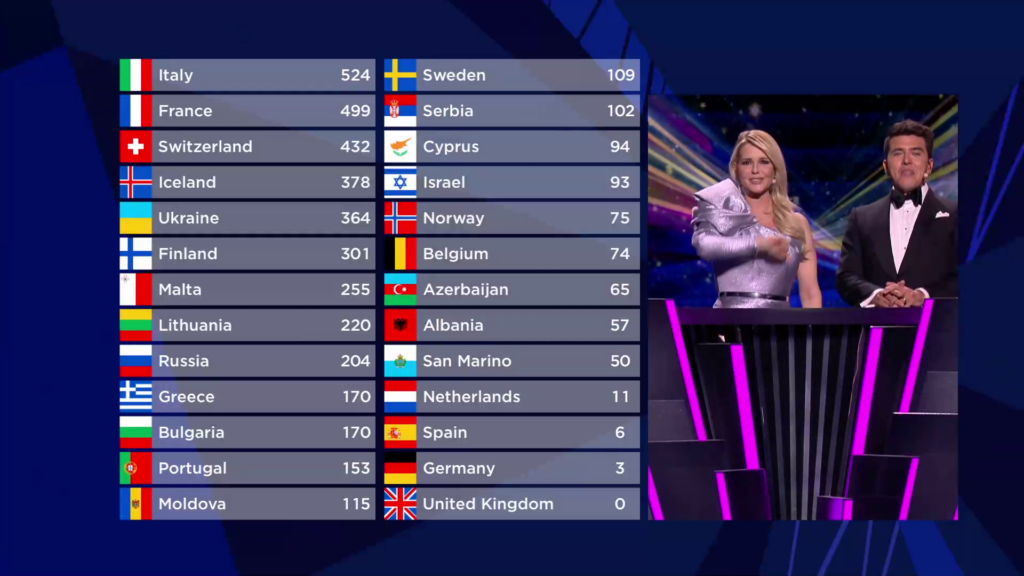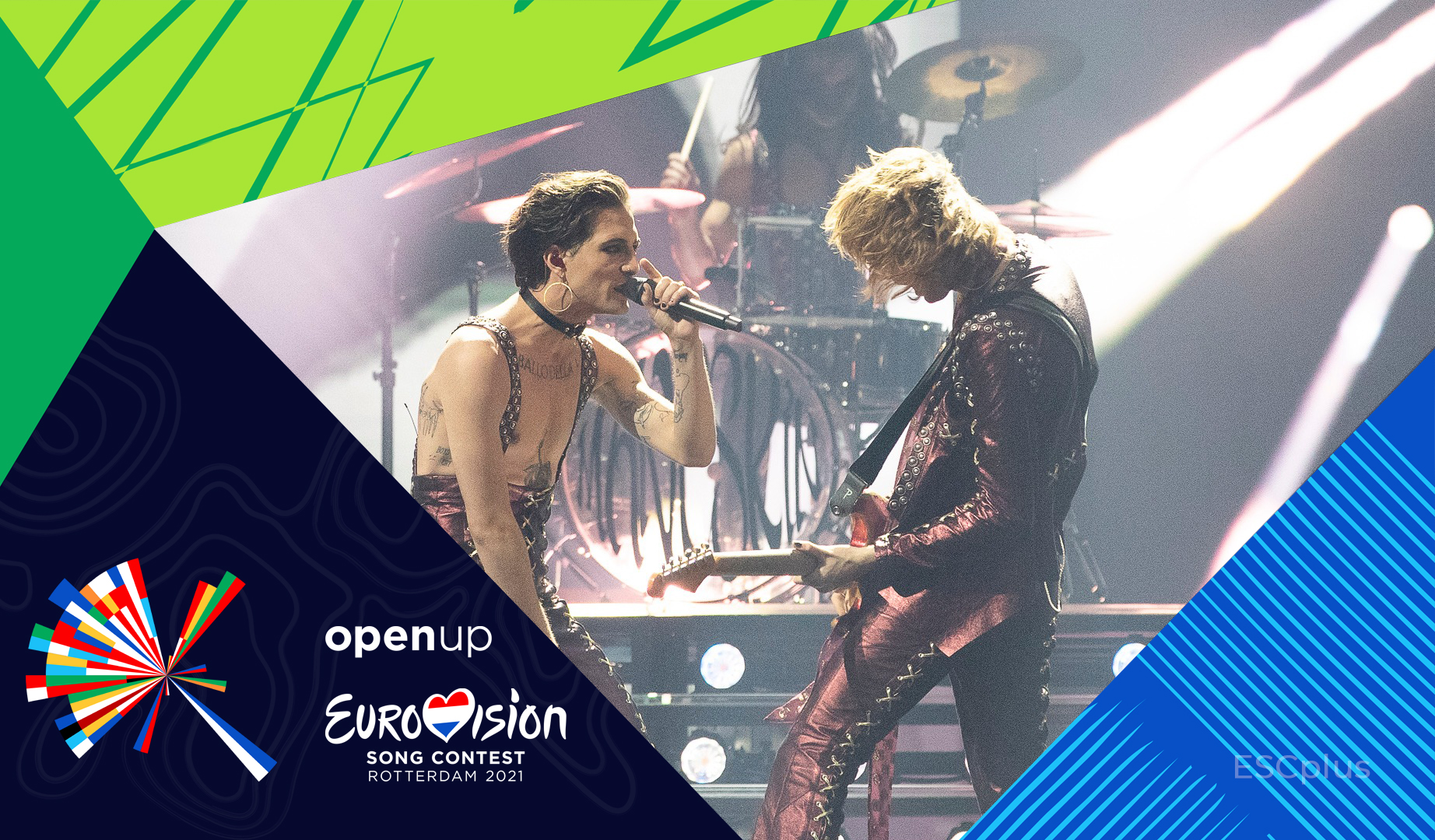On May 22nd 2021 the Grand Final of the Eurovision Song Contest 2021 took place.
We finally have a new Eurovision winner, and the winner of the Eurovision Song Contest 2021 is Italy. After having battled against 25 other countries, Italy proved to be too strong for its competitors. Congratulations, Italy with your victory!
Before the show started, the bookmakers and other types of polls pointed at France, Malta, and Italy as possible winners. And it turns out they were right!
The Grand Final Scoreboard

What did the Eurovision Song Contest 2021 look like?
The Grand Final of the Eurovision Song Contest 2021 took place on Saturday May 22nd 2021, and we know now which country the successor of Duncan Laurence is.
The show opened with a young DJ, Peter Gabriel (16), who had remixed the song “Venus” by the band Shocking Blue to be the song to which all contestants entered the arena. The host of this year’s contest sang along, because three out of five of them are professional singers; these presenters were Edsilia Rombley, Jan Smit, and Chantal Janzen. Afterwards the hosts were officially presented to the public of the song contest, which counts 200 million people worldwide. The hosts of this year’s show were: Edsilia Rombley, Nikkie de Jager (Nikkietutorials), Jan Smit, and Chantal Janzen.
Next, the competition was officially opened, and we got to see the contestants one by one, starting with Cyprus, and at the end we saw San Marino. The host country, the Netherlands, performed on spot number 23 out of a total of 26 contestants. In-between songs there were some pauses during which the hosts gave us updates on all things social media, we got a view of the audience, and some small-talk in the green room and the commentator booths.
Once all songs were sung, we moved on to the voting sequence. During this part of the show we got to see four different interval acts:
- The first one was “Music Binds Us”. This performance was done by internationally renowned DJ Afrojack, but also Dutch singer Glennis Grace (Eurovision 2005), and the Dutch singer Wulf. This acts consisted out of two linked parts, which eventually blended together. The act revolved around classical music and the type of music the Netherlands is known for worldwide, dance music. The first part focused on a film by Dutch Director Tim Oliehoek, and eventually the focus was directed to the venue of this year, Rotterdam Ahoy, where Glennis Grace sang a great rendition of Sia’s “Titanium”.
- The next interval consisted out of 4 parts: EurovisionTutorials with NikkiTutorials, about how to approach the contest when you organize it or when you are competing in it. Next the public got an insight in the world of Eurovision, what is needed to organize the contest, and other information. Next up, there was a carpool karaoke sequence with legendary past winners, and presenter Edsilia Rombley. The last part was meant to honor the Eurovision audience.
- The third interval act revolved around six former winners of the contest. They all performed on rooftops of well-known buildings in the city of Rotterdam. These winners were: Helena Paparizou (Greece 2005), Lordi (Finland 2006), Mans Zelmerlöw (Sweden 2015), Sandra Kim (Belgium 1986), Lenny Kuhr (Netherlands 1969) and Teach-Inn (Netherlands 1975). The rooftops were of the following buildings in Rotterdam: Maassilo, Hotel New York, and the Art Depot Bijmans van Beuningen.
- The last interval act revolved around last edition’s song contest winner, Duncan Laurence. There was a previously recorded video of him singing a part of his winning song “Arcade”, and his new single “Stars”. Duncan Laurence was not present live during the show, due to him being infected with COVID-19.
After the interval acts we moved on to a nail-biting announcement of the points by the public and the professional juries of each competing country. Only the 12 points were announced by famous national celebrities of the competing countries to save time, since 39 countries needed to grant their votes. The points that were awarded were: 1, 2, 3, 4, 5, 6, 7, 8, 9, 10, and 12 points. After this part, the public votes were announced, starting with the country that was awarded the least points from the national professional juries.
What does ESCplus think of this year’s winner?
Our opinion is that the 2021 edition would be a strong one, whatever would have happened. Before the Grand Final started there were no songs that we were against winning the contest. So for Italy to win the contest was just great. Like said before, it was a very strong edition of the contest, and the songs that were less favorable were eliminated during the two semi-finals.
What do you think?
Did your favourite win? Do you agree with which country won this year’s contest? Are you excited for the contest going to Rome next year?

